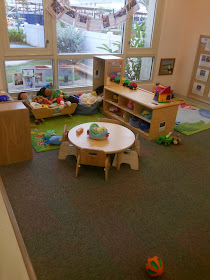Interestingly, this is always a good conversation starter among teachers and parents with both sides disagreeing to agree and finally coming to a conclusion that connects us all.
An opinion goes, "Yes, etiquette should be taught in school. Parents obviously see no importance anymore in teaching their children how to be polite in social and domestic ways. So, its up to the schools to teach them."
One opinion goes, "School is where you learn to do Math, English, Science etc. You should learn at school and be taught etiquette at home."
Another opinion goes, "Etiquette should be taught in schools. The nuclear family continues to deteriorate and children are raised not knowing the proper etiquette for many of the social situations they may be faced with throughout their lives.
While I believe it's ultimately the parents responsibility to ensure that their kids learn proper etiquette, in reality, children just aren't learning these skills at home. Schools can play a major role in building these very special skills.
While I believe it's ultimately the parents responsibility to ensure that their kids learn proper etiquette, in reality, children just aren't learning these skills at home. Schools can play a major role in building these very special skills.
Etiquette is a code of polite conduct. If you practice proper etiquette, you are less likely to offend or annoy people - and you may even charm them. Etiquette is basically behaviour that is polite and gracious in social situations.
Since the goal of education is to prepare an individual to be well adjusted for future life, it may be important to introduce weekly etiquette classes to growing children so they can learn to build proper behaviour.
Even though most people believe that etiquette and good manners are essential to any civilization, there is so little done to help children acquire these skills. We think that schools are an important place to teach etiquette because schools are the center space of learning for children. They are places where students share space, commonalities and differences as people, which makes for a wholesome learning experience. It also makes it easier for direct application of etiquettes learnt.And let's face it! There are some etiquettes kids can't learn from home e.g. dance and dating etiquettes, - things they are most likely to participate in as they get older.
Things like boys would hold doors for girls, boys would allow girls to eat first if there was food in class, boys would offer to take a girl's bag before she sat down and boys would offer to seat the girl at her desk. Things as these can be taught and applied in the class everyday.
Of course, the girls may also choose to decline.
Things like girls must speak softly, walk in a certain manner and sit with legs closed or crossed depending on the situation etc. And these are to mention a few in the very broad topic - Etiquette.
Since the goal of education is to prepare an individual to be well adjusted for future life, it may be important to introduce weekly etiquette classes to growing children so they can learn to build proper behaviour.
Even though most people believe that etiquette and good manners are essential to any civilization, there is so little done to help children acquire these skills. We think that schools are an important place to teach etiquette because schools are the center space of learning for children. They are places where students share space, commonalities and differences as people, which makes for a wholesome learning experience. It also makes it easier for direct application of etiquettes learnt.And let's face it! There are some etiquettes kids can't learn from home e.g. dance and dating etiquettes, - things they are most likely to participate in as they get older.
Things like boys would hold doors for girls, boys would allow girls to eat first if there was food in class, boys would offer to take a girl's bag before she sat down and boys would offer to seat the girl at her desk. Things as these can be taught and applied in the class everyday.
Of course, the girls may also choose to decline.
Things like girls must speak softly, walk in a certain manner and sit with legs closed or crossed depending on the situation etc. And these are to mention a few in the very broad topic - Etiquette.
There are many types of etiquettes. Family, social, professional, office and social media etiquettes. Let's share some.
Your child's school may not teach it as most do not in Nigeria, but you could try to help your children grow into enviable individuals.
Your child's school may not teach it as most do not in Nigeria, but you could try to help your children grow into enviable individuals.
A great place to start with however is at home. Here are some family etiquette you could teach at home. They include;
- Respect each other’s personal space.
- Respect each other’s belongings.
- Don’t interrupt when someone else is talking.
- Be on time for dinner.
- Say “Please” and “Thank you.”
- Don’t text or talk on your mobile phone during a family meal.
- Chew with your mouth closed.
- Don’t yell or call each other names.
- Pick up after yourself so someone else doesn’t have to do it.
- Listen to Mom and Dad and do what they say
In raising a generation of young Nigerians...where social media and communication technology is tending towards making students less people-oriented but more gadget-oriented, teaching etiquettes in school will allow us to do the needful.
More examples of teachable etiquettes to come soon.
P.S
We are moving our blog to a new site soon. We remain the same. We only want to be able to do more for/with you. Look out for the special giveaway season that comes with our movement. Thank you

.jpg)

